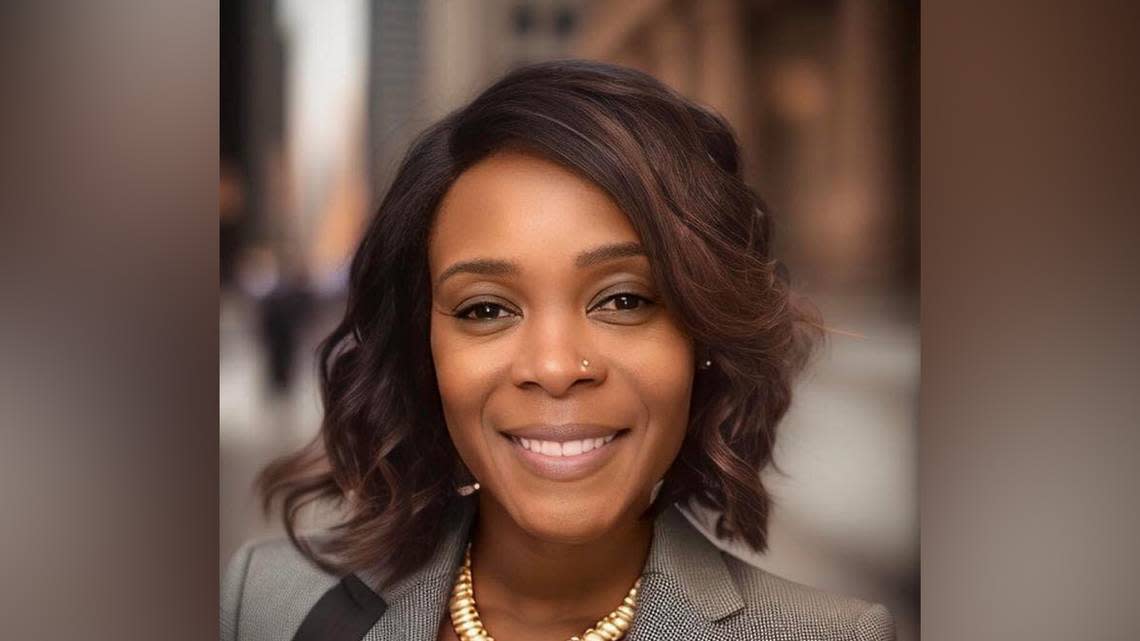This could be the last runoff for NC school district where 1 candidate has resigned
Next week’s election runoff could mark the last time that an Orange County school board candidate gets to challenge a candidate who finished ahead of them the first time around.
Democratic state Sen. Graig Meyer, who lives in Orange County, filed a bill Tuesday that would change how winners are chosen in the nonpartisan Orange County Schools Board of Education race.
The current state law, enacted in 1977, sets a threshold for victory by dividing the total number of votes cast by the number of open seats, and then dividing that number by two. The winner must get at least that number of votes to avoid a possible runoff.
If Meyer’s bill becomes law, winners would be determined starting in 2026 by who gets the most votes — the plurality method.
The current “election and runoff method” became an issue in March when incumbent board member Jennifer Moore finished third in the race for three seats but fell 60 votes shy of the 6,588-vote threshold required by state law.
That gave the fourth-place finisher, incumbent board member Bonnie Hauser, the option to seek a runoff despite having 482 fewer votes.
Moore has since resigned her school board seat amid questions about a doctorate, but she remains on the May 14 runoff ballot.

Why is the law being changed?
Meyer provided more information Thursday about Orange County’s history, after speaking with Gerry Cohen, a former special counsel to the N.C. General Assembly.
The state legislature had a hand in choosing most North Carolina school board members until 1966, when a new law took effect that let counties directly elect school boards like they did county boards of commissioners, according to a State Board of Elections report.
Orange County’s school board elections, initially partisan, were established with a runoff option in 1968, the same year the county schools were integrated, Meyer said.
At that time, Chapel Hill and Carrboro residents — who had integrated their schools in 1966 — could also vote for county school board, he said. A 1969 legislative change limited county school board elections to county school district voters, he said.
The 1977 law that he is now seeking to change “likely codified the runoff process that was already being used,” Meyer said.
While multiple N.C. school boards still allow runoffs, the boards in the Chapel Hill-Carrboro, Wake and Durham school districts use the plurality method.
Orange County’s municipal governments also use the plurality election method, Meyer said, so the proposed change would create consistency countywide.
It also would end a vestige of the state’s racist past, he said, noting a recent op-ed by former county school board member Kay Singer.
“I thought her op-ed was fantastic in pointing out how the roots of that runoff were kind of a leftover piece of Jim Crow, of putting in a stopgap to try and make it difficult for Black folks to get elected,” Meyer said. “It was likely to stop Black folks from being able to ‘single-shot’ and get somebody onto a board even when they didn’t have enough votes to get to a majority.”

How has voting been used to suppress rights?
In a plurality system, voters who are in the minority can “single-shot,” or maximize their voting power, by working together to elect at least one candidate in a multi-seat race.
But an election and runoff system can suppress minority voting power in a multi-seat race by setting a higher bar to win and giving the power to determine a runoff to voters who may not have supported either candidate the first time.
That has historically allowed white voters to elect white candidates and shut out Black candidates, Moore’s supporters have argued in criticizing Hauser’s decision to seek a runoff. The system kept white Southern Democrats in power and helped also to restore unity in case of a party split, Cal Jillson, a professor at Southern Methodist University in Texas, told The Washington Post in 2014.
Orange County has elected Black school board candidates before, Meyer said, and he doesn’t expect that to change.
But “it’s even harder to get a good representative vote when you have a runoff where participation tends to be incredibly low, and I think that representing the will of the largest number of voters possible is the best way to elect,” he said.
Why did Moore resign her seat?
Moore cited “medical concerns” in her April 17 resignation email to Board Chair Anne Purcell and other district officials. The email was sent after The News & Observer called Moore about her reported doctorate from Bellevue University in Nebraska.
Bellevue University officials told The N&O they did not have a record of a student named “Jennifer Denise Moore.”
On April 23, Moore posted a letter on her campaign website accepting “responsibility for not clarifying that I do not have a Ph.D.”
Meyer, who had endorsed Moore’s re-election bid, posted on Instagram last week that he was disappointed in her and “what her actions say to our students.” But he also lacks confidence in Hauser, he said, because of “divisiveness” driven by her supporters.
“Their comments demonstrate a true failure to focus on the educational needs of our children,” Meyer said in the post. “And the approach is furthering racial divides in our community, when we need schools to be one of our key institutions to bring people together across differences.”
What happens if Moore wins the May 14 runoff?
The May 14 ballots were printed and mailed to absentee voters before Moore resigned, so it is possible for her to win the runoff election. However, Moore posted on her campaign website before it was taken down that she will not return to the board if she wins.
If she does finish first and does not serve, the board could appoint someone to fill her position until a new election is held.






